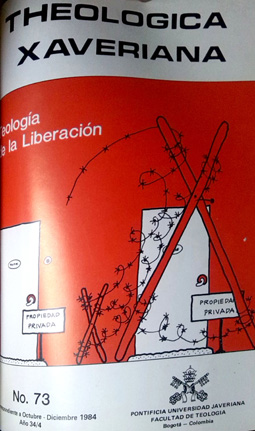Abstract
La teología bíblica de la liberación gana fuerza y profundidad al constatar la relación existente entre la liberación de Egipto y la opresión del imperio salomónico sobre los israelitas. El historiador 'yawista' narra y expresa su fe en la liberación por Yahwe de la opresión egipcia (s. XIII a C.) desde unas condiciones de opresión, que está viviendo en su propia época; describe la opresión faraónica con los mismos términos que pone en boca de los israelitas para expresar su protesta contra la opresión salomónica (Ex 1, 11: "(Los egipcios) les impusieron capataces de los trabajos forzosos, con el propósito de oprimirlos en su labor de cargadores para la construcción de las ciudades de avituallamiento del Faraón, Pitón y Ramsés"). Estos términos son de origen cananeo siro-palestino (sbl, ms, cry msknwt, cbdh qSh); entran en el lenguaje blblico precisamente en época salomónica, al tiempo que se van implantando en el imperio las instituciones cananeas que tales términos significan.
This journal is registered under a Creative Commons Attribution 4.0 International Public License. Thus, this work may be reproduced, distributed, and publicly shared in digital format, as long as the names of the authors and Pontificia Universidad Javeriana are acknowledged. Others are allowed to quote, adapt, transform, auto-archive, republish, and create based on this material, for any purpose (even commercial ones), provided the authorship is duly acknowledged, a link to the original work is provided, and it is specified if changes have been made. Pontificia Universidad Javeriana does not hold the rights of published works and the authors are solely responsible for the contents of their works; they keep the moral, intellectual, privacy, and publicity rights.
Approving the intervention of the work (review, copy-editing, translation, layout) and the following outreach, are granted through an use license and not through an assignment of rights. This means the journal and Pontificia Universidad Javeriana cannot be held responsible for any ethical malpractice by the authors. As a consequence of the protection granted by the use license, the journal is not required to publish recantations or modify information already published, unless the errata stems from the editorial management process. Publishing contents in this journal does not generate royalties for contributors.


